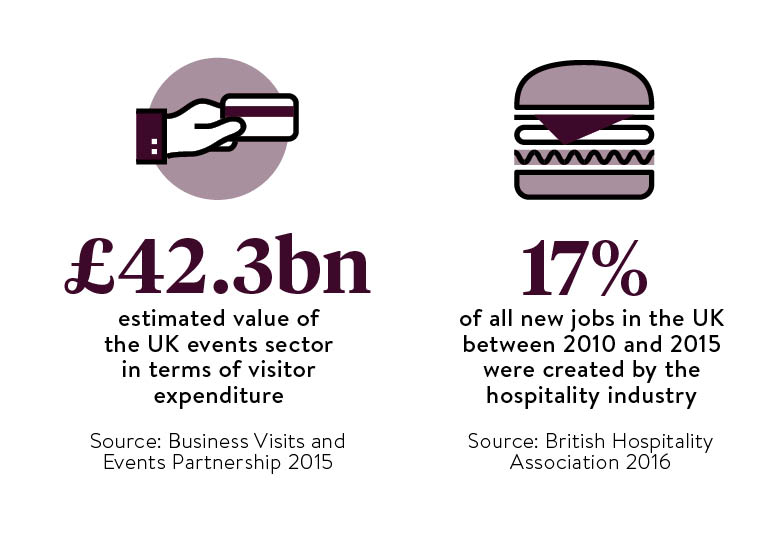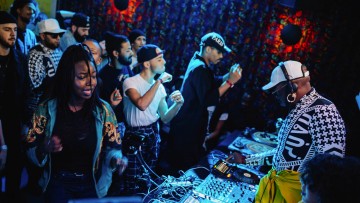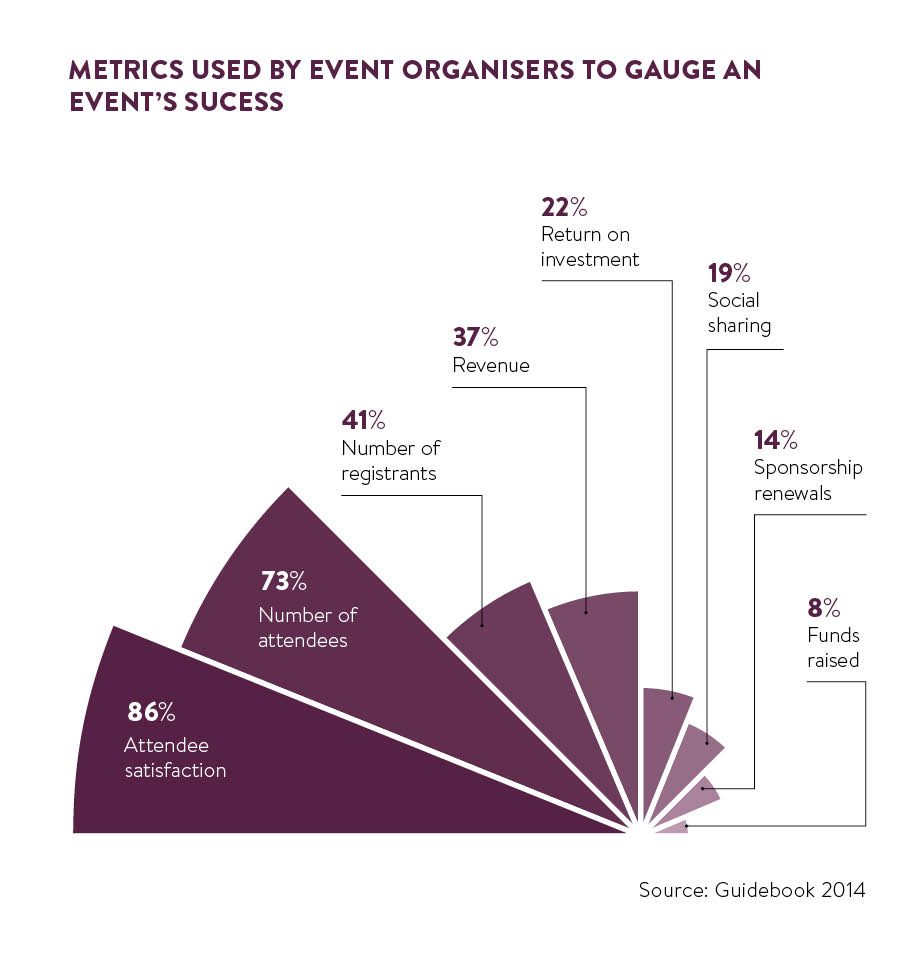From launching an urban forest festival in a disused car park through to creating a gravy fountain in homage to the revered British Sunday roast, brand experiences have dominated marketing campaigns as events become evermore experiential.
Immersive experiences are enjoying their ascension from underground gatherings to large-scale events, designed to delight mass audiences, as witnessed by the meteoric rise of Secret Cinema. The British events company specialising in cinema experiences smashed its attendance records last year with its production of Star Wars: The Empire Strikes Back. Across a 100-day run, more than 100,000 people ventured out to a disused newspaper printing plant in Canada Water, east London, which was transformed into locations from the film, to take part and witness a fully immersive production.
As consumers grow evermore weary of constant digital bombardment, they seek out more authentic experiences to immerse themselves with a brand
And whether the audience is business or consumer-led, brands are increasingly choosing to activate their live campaigns in London. Zanine Adams, head of events and business development at the capital’s official promotional company London & Partners, explains: “Experiential events continue to be at the forefront of many a marketing campaign as organisers see the value in using London’s exciting backdrop to enhance brand sales and media opportunities.”
London: the perfect backdrop
Wahaca was among the brands to choose the capital for their activation in 2015, hosting their Day of the Dead festival, created and executed by brand experience agency RPM at Tobacco Dock. More than 4,500 people attended the 12-hour event, which featured a Mexican market, pop-up supper club plus sets from artists including indie rock band The Horrors.
And while many believed that increasingly digital lives would in turn have a dampening effect on events, far from it. As consumers grow evermore weary of the constant digital bombardment of brand messages, they seek out more authentic experiences that allow them the bandwidth to immerse themselves with a brand.

Cadbury has long taken an experiential approach to its events and this year the confectionary giant unveiled one of its more ambitious projects to date. The Creme Egg Café, a seven-week pop-up residing on Soho’s Greek Street, spanned three floors with interactive elements, plus a menu honouring the fondant-filled egg. Creating an authentic environment to engage consumers emotionally against a backdrop of socially shareable moments could help the brand overcome the challenge of an early Easter.
The shift in consumer engagement is fuelling the rise in brand experiences, says Mintel’s senior trends consultant Richard Cope. The market intelligence agency found that 20 per cent of consumers interviewed want somewhere to relax and unwind.
Mr Cope explains: “This presents opportunities for brands to create holistic experiences and environments that also immerse consumers in their products and ethics. We’ll see a rise in the number of consumers looking for concepts such as Soho House’s sit-down store in Berlin, which looks like an apartment, but where everything is for sale, and IKEA’s ball pools for adults in France.”

Hotel Group Generator partners with music platform Boiler Room to create events at its hotels across Europe
The quest for shared experiences and moments to amplify over social media is on the rise as consumers lead increasingly digital lives yet demand authentic experiences. “Generation download” is weary from incessant digital brand messages and now craves immersive experiences, seeking out communities to join in a live environment rather than behind a screen.
This digital detox principle was behind Innocent Drink’s recent music event. Held in the Kent countryside, Innocent Un-plugged encouraged its 1,500-strong audience to ditch their mobiles, forego social media and enjoy a festival staffed by the brand’s workforce, with their managing director serving afternoon tea.
Technology adding to the experience
Yet undoubtedly, technology and live events are inextricably twinned and, as agency Adding Value’s founder Randle Stonier says, the events industry is at a crossroads. “We are at the start of a deep cultural shift in communications and engagement, and therefore events,” he says.
“Virtual reality such as Oculus Rift and augmented reality technology will increasingly gather momentum and transform our thinking and approach to events and immersive audience engagement. A great AR experience will transform how we interact with each other and the world around us. We are now entering the world of outer-body experiences that we can bring to life way before any global gathering in a way that will really resonate with our audiences.”

FreemanXP Europe, Middle East and Africa senior vice president and managing director Kim Myhre agrees: “The use of event technology to enhance the attendee experience is now top of mind for brand experience designers. Emerging technology has begun to transform the live event experience, whether it is providing better networking, richer content experiences or more interactive participation.”
So as technology advances and immersive experiences multiply, how will the hospitality industry compete, and offer the experiences that consumers will expect? There is a rise in smaller bespoke experiences says Concerto Group chief executive Sam Gill. “The trend is for very focused, targeted entertainment for smaller groups, with private dining and boxes at sell-out concerts and major sporting occasions in high demand,” he says.
For hotels, cross-brand collaboration is key to welcoming new audiences as witnessed by Boiler Room’s partnership with Generator Hostels. The underground music network produced and created events on Generator’s rooftops, lobbies and penthouses, allowing the accommodation provider access to a much-desired audience and underlining its commitment to music, art and culture.
Events and hospitality will continue to thrive in a digital world, Gareth Dimelow, founder of communications consultancy Liftd, concludes. “Technology enables interaction at events, whether that’s using gamification for data capture, interactive screens for content showcases or social media to enable organisers to really listen to their audiences,” he says. “We have no choice but to exploit tech innovations as ultimately they serve to make our experiences more compelling, rewarding and effective.”
